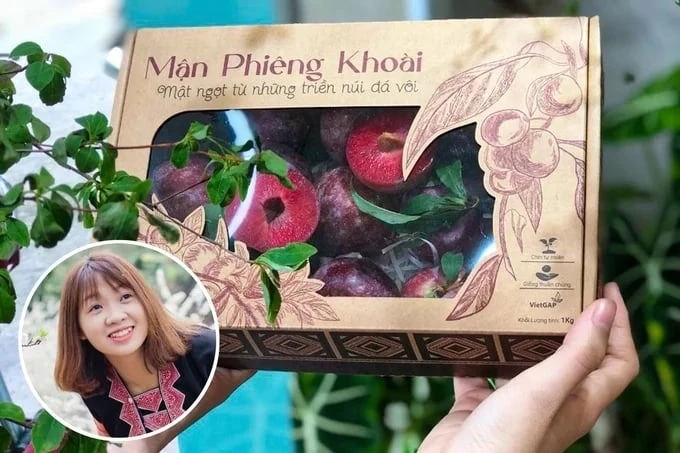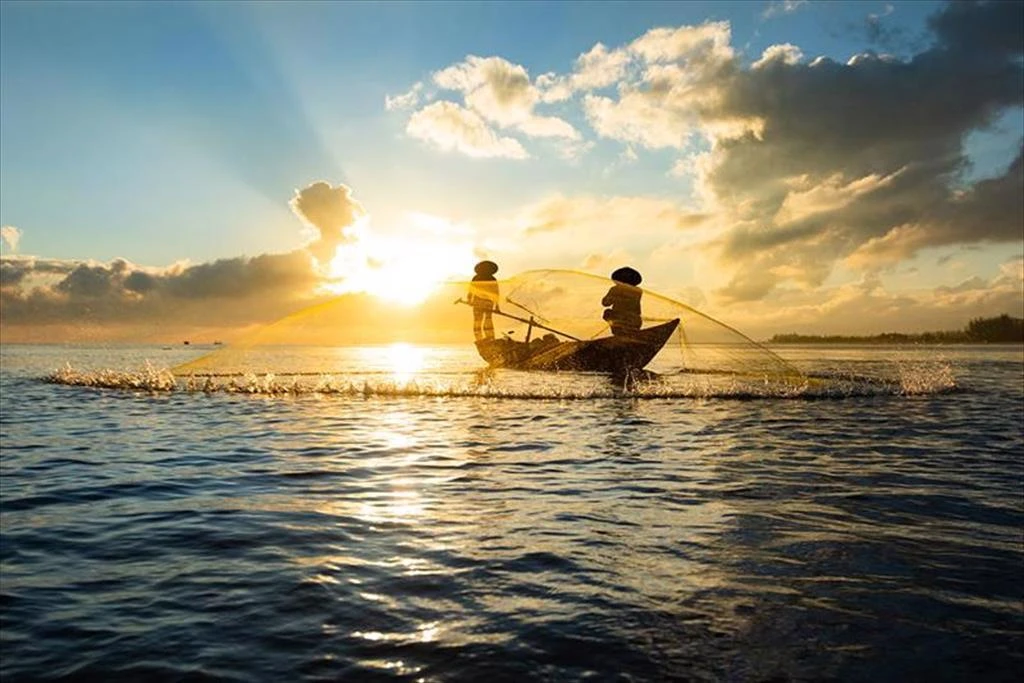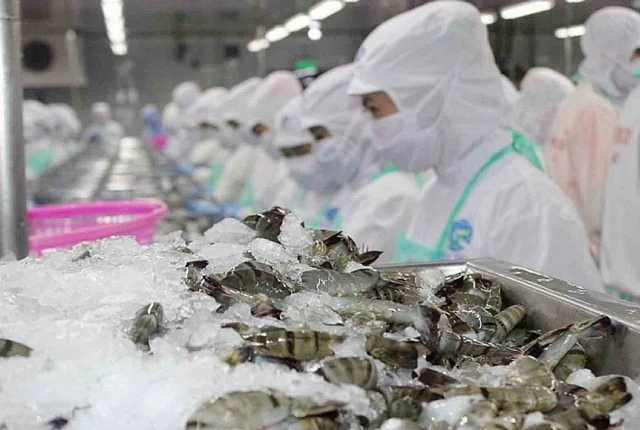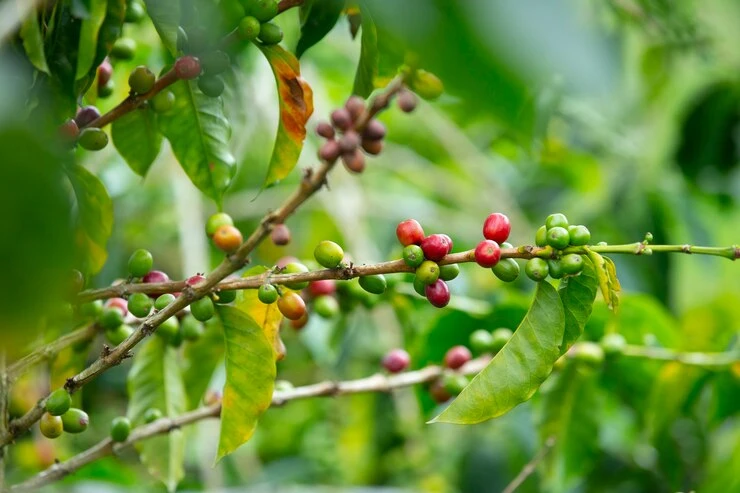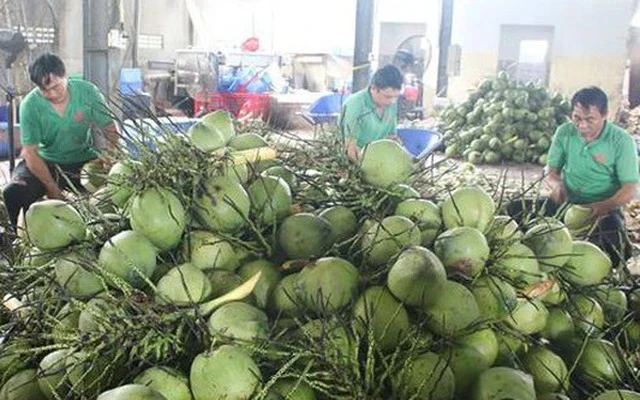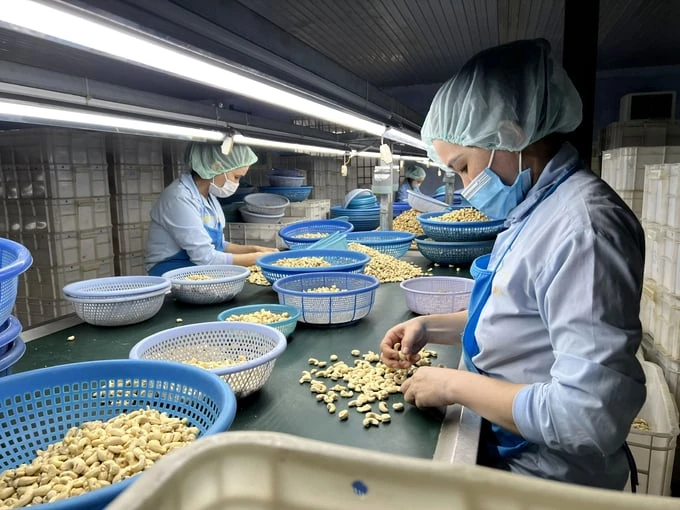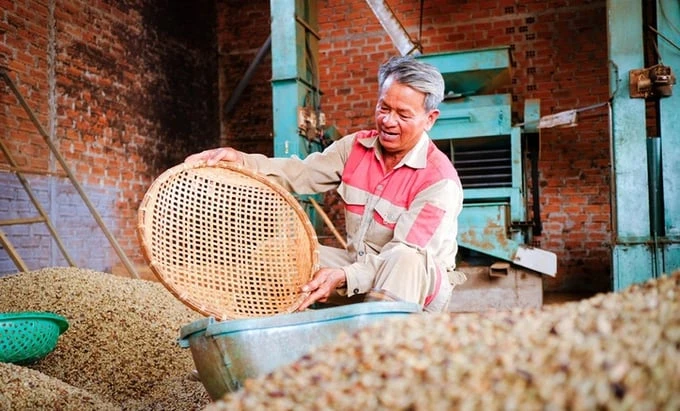It wasn't until about 6 - 7 years ago, during plum season, when I returned to my village and witnessed traders entering gardens, driving down prices. They spread tarps under trees, vigorously shaking them to gather fallen fruit. It was heartbreaking. A kilogram fetched only 500 VND. The most beautiful plums were sold for just 1 - 2 thousand VND. My ears flowed freely.”
She thought to herself: Should our villagers continue this cycle of dependence on traders? Should we clear plum trees to plant coffee, only to replant when coffee prices decline? Something had to change for Phieng Khoai plums.
Thinking, researching, learning, the teacher born in 1986 decided to establish the Noong Pieu Indigenous Agricultural Cooperative. Inspired by the Pieu scarf and Com shirt of the Thai people, these symbols represented our startup. Her primary goal: elevate the value of Phieng Khoai plums.
From a teacher accustomed to chalk and blackboards, Bui Phuong Thanh ventured into the realm of agriculture, learned about cooperative activities, mobilized villagers to revolutionize production processes, and sought out new markets. It took several years to find a viable path forward.
Her resolve was clear: Phieng Khoai plums must excel in flavor, captivate even the most discerning customers, and aim for the export market. The first step was to craft a compelling narrative about Phieng Khoai plums.
In 2021, when Son La province launched a cooperative project aimed at increasing the value of agricultural products, with a special focus on fruits, Bui Phuong Thanh and her team successfully established a plum model in Phieng Khoai that consistently commands the highest prices in the market. These plums are meticulously cultivated to achieve a weight of 14-16 fruits per kilogram, a stark contrast to the typical 60-70 fruits per kilogram. They boast a thicker, whiter powdery skin that, when rubbed, reveals a gradual transition from powder to a deep red hue, akin to the color of an expensive ruby.
These plums are no different from the pricey imported fruits that Vietnamese consumers often splurge on. Each Ruby plum reaching the customer comes with traceability information such as origin, growing area code, production process details, and an accompanying narrative.
Bui Phuong Thanh proudly displayed the box containing the cooperative's premium product, typically fetching 250,000 VND per kilogram. Emblazoned on the box is the story that Thanh and Noong Pieu wish to convey.
In essence, the Noong Pieu Indigenous Agricultural Cooperative, whose name translates to "Little Sister Pieu," cultivates Ruby plums on limestone mountains, employing advanced agricultural science and technology in their cultivation and harvesting processes. These Ruby plums are nurtured with care and dedication by farmers who ensure each plum is harvested at the peak of perfection.
This meticulous care preserves the plums' natural sweetness, distinct aroma, vivid red color, and dense white powder, imparting a unique and unmistakable allure. Each plum embodies not just a fruit but also the passion and narrative of the people behind this exceptional product.
Bui Phuong Thanh remarked that this is just the beginning. Although "Little Sister Pieu" was the first to supply Phieng Khoai plums for Vietnam Airlines' inflight meals, the first to host sales days on e-commerce platforms, and the first to elevate Ruby plums to 4-star OCOP (One Commune One Product) standards, she is also the first to export...
After EU are China, Korea, and Japan
Reflecting on the achievement of the Noong Pieu Indigenous Agricultural Cooperative, which was the first to export 10 tons of Phieng Khoai plums to the EU market, Bui Phuong Thanh shared that this accomplishment was her greatest ambition. The value of Phieng Khoai plums must conquer the most demanding markets abroad before returning to win over Vietnamese consumers. This path, she believes, will bring greater prosperity to the plum-growing community in Son La.
According to agricultural statistics, Son La province currently cultivates approximately 12,500 hectares of plum orchards, yielding over 81,000 tons annually. The production is primarily concentrated in areas such as Yen Chau, Moc Chau, Van Ho, Son La city, and Mai Son.
"Little Sister Pieu" always considers the broader impact: "If I were only thinking of myself, I would focus solely on Ruby Phieng Khoai plums. But no, the value of Son La plums must benefit the diverse ethnic communities across Son La province," Thanh emphasized before the 4-star OCOP product evaluation council chaired by Vice Chairman Nguyen Thanh Cong of the Son La Provincial People's Committee.
Following the EU market, the Noong Pieu Indigenous Agricultural Cooperative's next ambition is to enter markets in China, Korea, Japan, and beyond. Initial product samples sent there have received exceptionally positive feedback. Bui Phuong Thanh and her team continue to pioneer new stories about sourcing areas and market standards.
In 2021, the Noong Pieu Indigenous Agricultural Products Cooperative successfully established a designated growing area covering 30.5 hectares, with an additional 150 hectares in associated areas, including 12 hectares transitioning to organic farming. Son La province has also planned the Phieng Khoai plum area to become its first high-tech production zone for Ruby plums.
Every day, plum growers from Moc Chau, Yen Chau, Mai Son, and various other regions visit Phieng Khoai to learn about production processes, online sales strategies, and meeting market standards. Bui Phuong Thanh generously shares her knowledge, driven by passion and dedication.
The petite woman's aspiration is for the Ruby plum sourcing area in Son La to expand further. She advocates for high-tech farming methods, seasonal production techniques, and technical solutions for Ruby plums originating from areas like Moc Chau, Mai Son, and other plum-growing regions.
